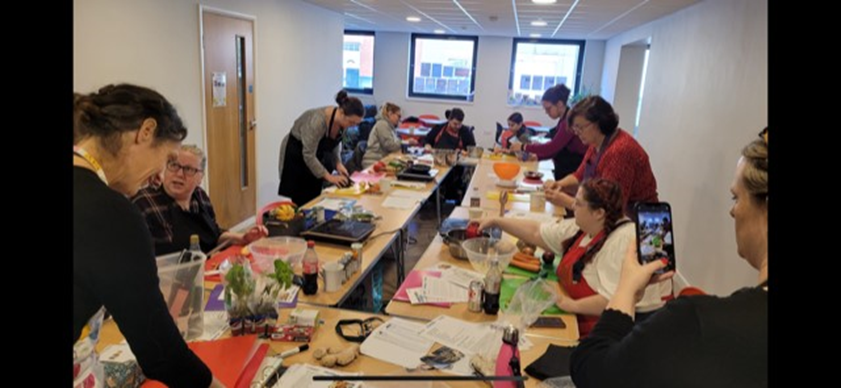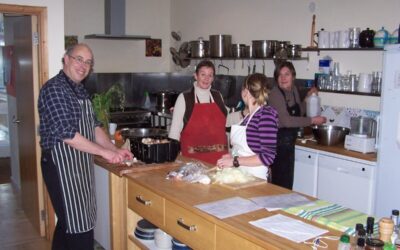North West Leicestershire District Council: Tackling food poverty
The project
COVID-19 and cost-of-living pressures have caused an ever-increasing reliance on food banks with the community of North West Leicestershire. The council recognises this, and the urgent need to tackle food poverty, therefore it created a new role: Food Poverty Officer. This role helps meet that need, offering families and individuals pathways of support away from food banks, if possible, with debt advice or ideas for low-cost meals. However, the role is wider than that, as it seeks to collaborate with partners, such as neighbouring authorities and the countywide Food Poverty Officer and Sustainable Food Partnership, strengthening the work that the food banks do and helping residents in need to access critical services.
The new officer is putting together an action plan to holistically address these issues. One action already carried out is the roll-out of a low-cost cooking course, linked to the council’s cost of living work, recognising that more people are trying to reduce their gas and electricity bills. The course includes lessons on slow cooker cooking, with each attendee receiving a slow cooker on completion of the course. The course has also seen guest speakers attend from different services and partners, such as Love Food Hate Waste.
The benefits
Stronger collaboration is being achieved between North West Leicestershire food banks, the council and its partners. The project has already improved council communications and referral pathways for vulnerable residents. It has also improved communication and support when required for food banks, as well as training opportunities for the volunteers.
From the 10 families that attended the initial low-cost cooking course (32 people directly benefiting from the weekly cooking education, with the meals going home after), five either use a food bank or were on the cusp of using a food bank and now feel confident they would be able source food and cook it in an affordable way.
One attendee is a carer for his ill wife and had never done any of the cooking. He has learnt how to cook five good meals for himself and his wife. Another attendee has learnt the basics, ready to move into a house on his own. Five families learned about the social supermarket from the course and now use it weekly. All attendees went away with cooking recipe skills packs, a slow cooker, cooking books, spaghetti measure and the skills to cook meals for families.






